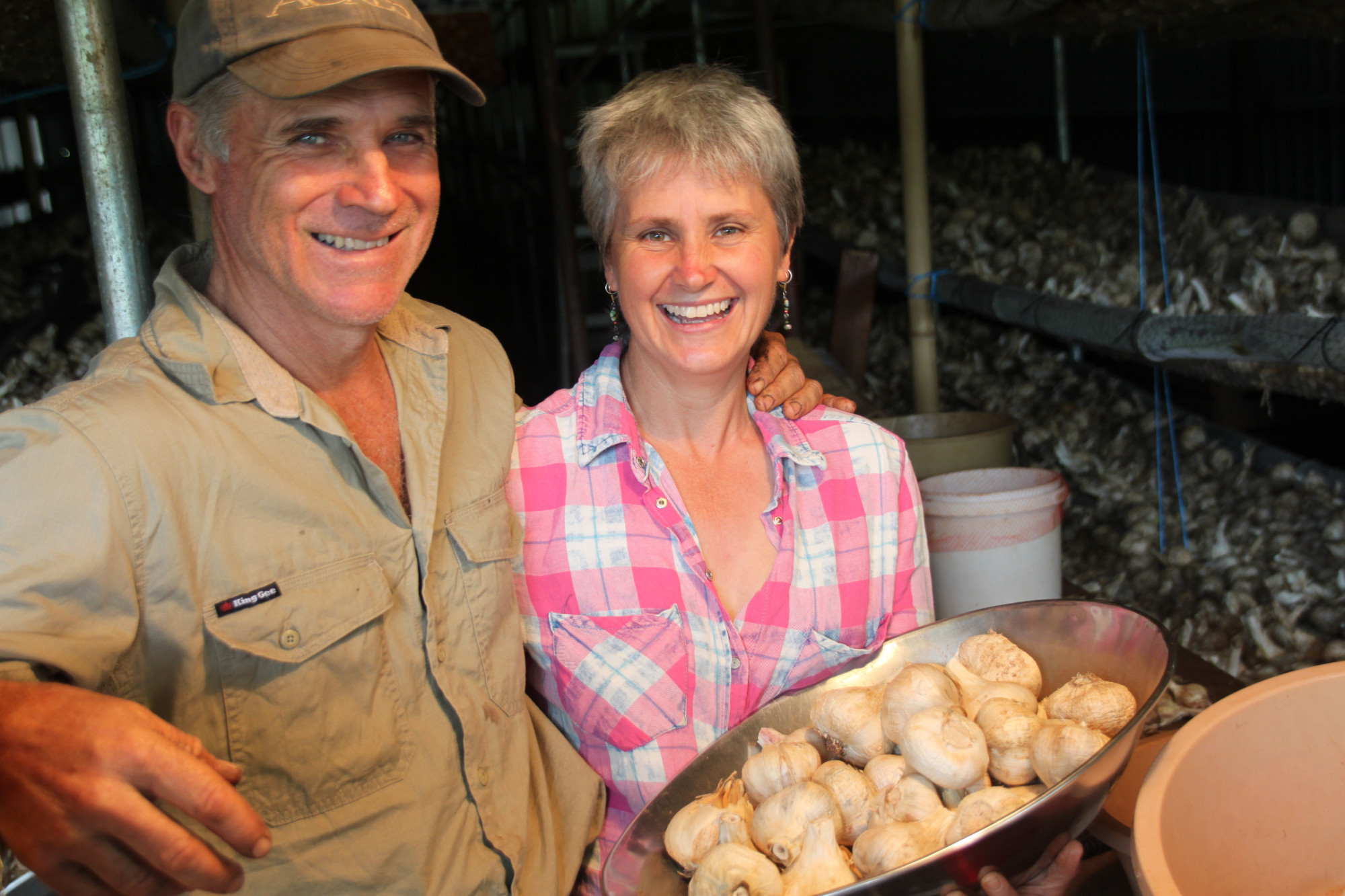Community & Business
10 March, 2021
Kisima Garlic grows bumper crop
KABAN farmer, Adam Collins is on a mission to create the best quality, finest tasting organic and bio-dynamic garlic bulbs it is possible to grow and has spent the last two decades refining the condition of his soils and the flavours of his produce.

BY SALLY TURLEY
KABAN farmer, Adam Collins is on a mission to create the best quality, finest tasting organic and bio-dynamic garlic bulbs it is possible to grow and has spent the last two decades refining the condition of his soils and the flavours of his produce.
His dedication paid dividends this year, when along with his partner Gwen Bocci and his father John Collins, they recently harvested their biggest crop of garlic on “Kisima Farm” in 20 years. They picked an impressive 10 tonnes of Russian and True Garlic bulbs from just under a hectare of land.
“When growing garlic, the yield is more about the size of the bulbs than it is about a kilo/ hectare basis and the bulbs this year were a very good size," Mr Collins said.
The harvest took us two weeks to complete and the support we received from the local community was inspiring.
“A total of 37 people came and helped us pick the crop off the field and some of those have come back to help with the painstaking job of peeling the bulbs as well. Having help meant we were able to get the crop off and be two weeks into the drying process before the wet arrived, which was very beneficial.”
Every bulb was hand planted, hand harvested and inspected, hand peeled and hand cracked before being sold for $30/kg to Tableland, Cooktown, Townsville and Longreach organic retailers.
"There is a considerable difference between the harvest weight and the selling weight,” Mr Collins pointed out.
“Garlic out of the paddock doesn't taste like garlic. It has to be stored undercover for 6 to 8 weeks to cure and the cloves shrink as they dry. Garlic has very few predators and can sit for up to a year in storage.
“The bulbs need the right ambient temperature and humidity to dry correctly. If they dry too fast, the outside seals and the inside rots. The dry sclerophyll forests around Kaban are ideally suited to growing garlic and the whole process has worked perfectly this year.”
In a recent response to consumer demand the Collins’ have started breaking their garlic down to sell in single cloves.
“People love the larger Russian variety and in households of 1 or 2 they are sometimes hesitant to buy the full knob of garlic,” Ms Bocci said.
While costs are kept to a minimum in this model of farming, the Collins' have to retain a tonne (or 10%) of bulbs each year as seed stock, to replant their crop and must rotate their paddock use over a 6 to 8 year cycle, planting green manure to increase soil nutrient levels .
There was also a constant process of biodynamic soil improvement being carried out. Preparations made from herbal flowers were added to compost heaps to benefit the atmosphere and to animal sheaths which were buried to enhance the health of soils in the paddocks.
Sent to boarding school in England at seven years of age, before spending five years at an agricultural university “learning how to kill everything,” Mr Collins spent several years travelling the world looking at farming enterprises to see what excited him, after which he knew he did not want to work with chemicals.
Mr Collin's reverence for the earth drives him to create a 5 star atmosphere for nature on their property. "Using fertilisers makes the grass and crops dependent on us, we become their life support system because we have stuffed up all the earth's natural cycles,” he said.
But even with demand for organic garlic growing Australia-wide and their own crop selling out in just three months last year, the Collins' have no plans of expanding their current crop.
They are focused on maintaining quality, evolving their flavours and following their personal ethos of “living simply to simply live.”


